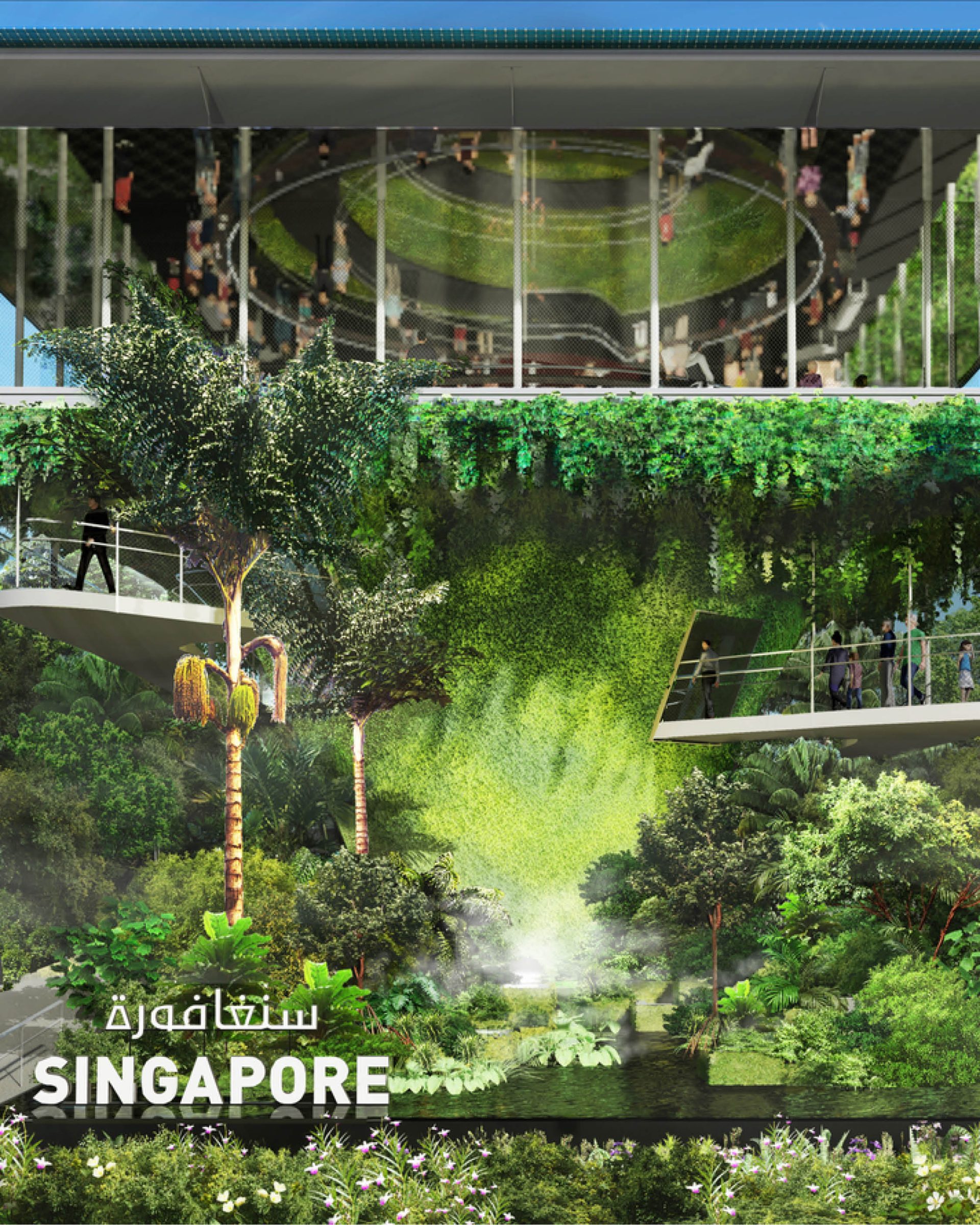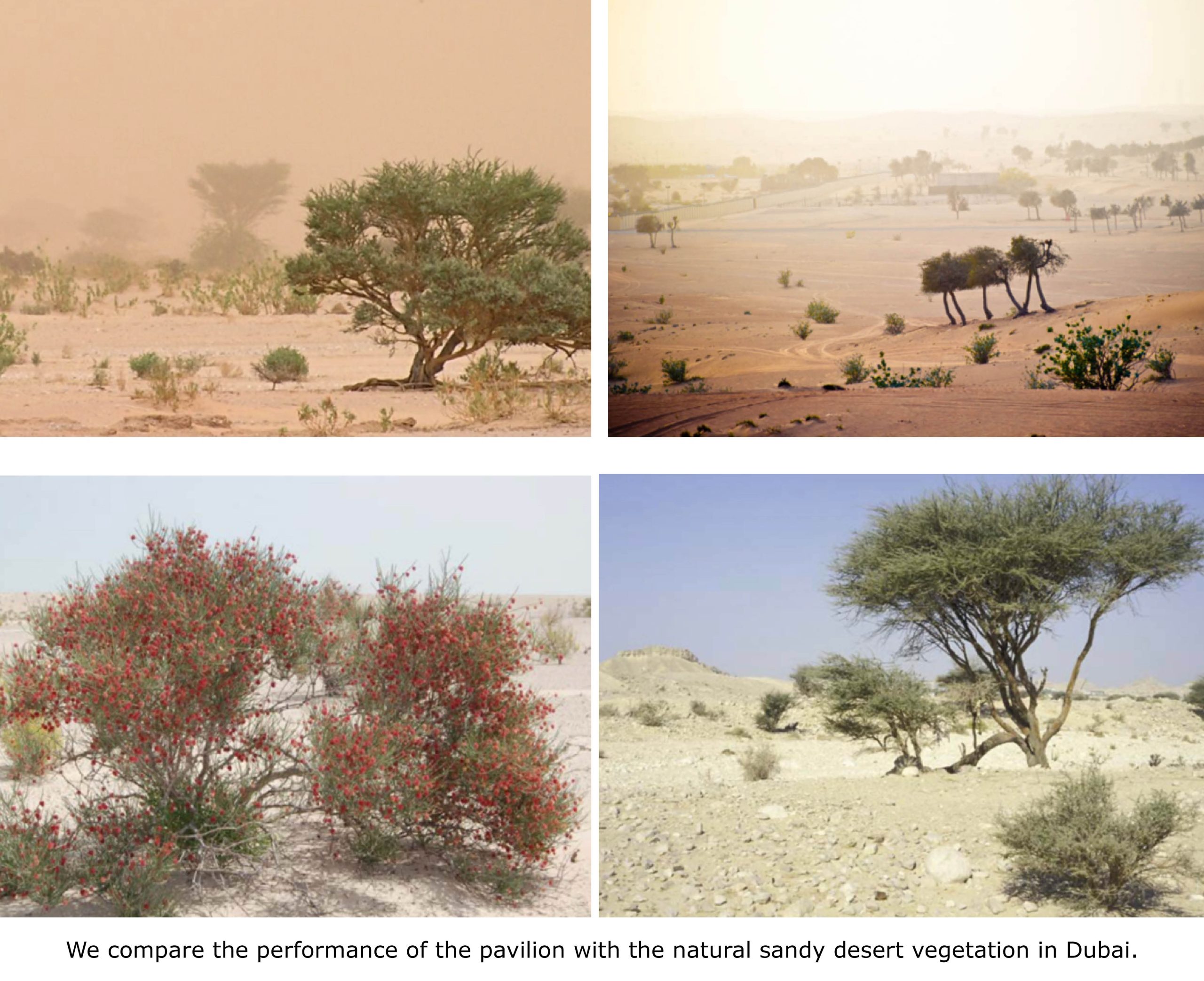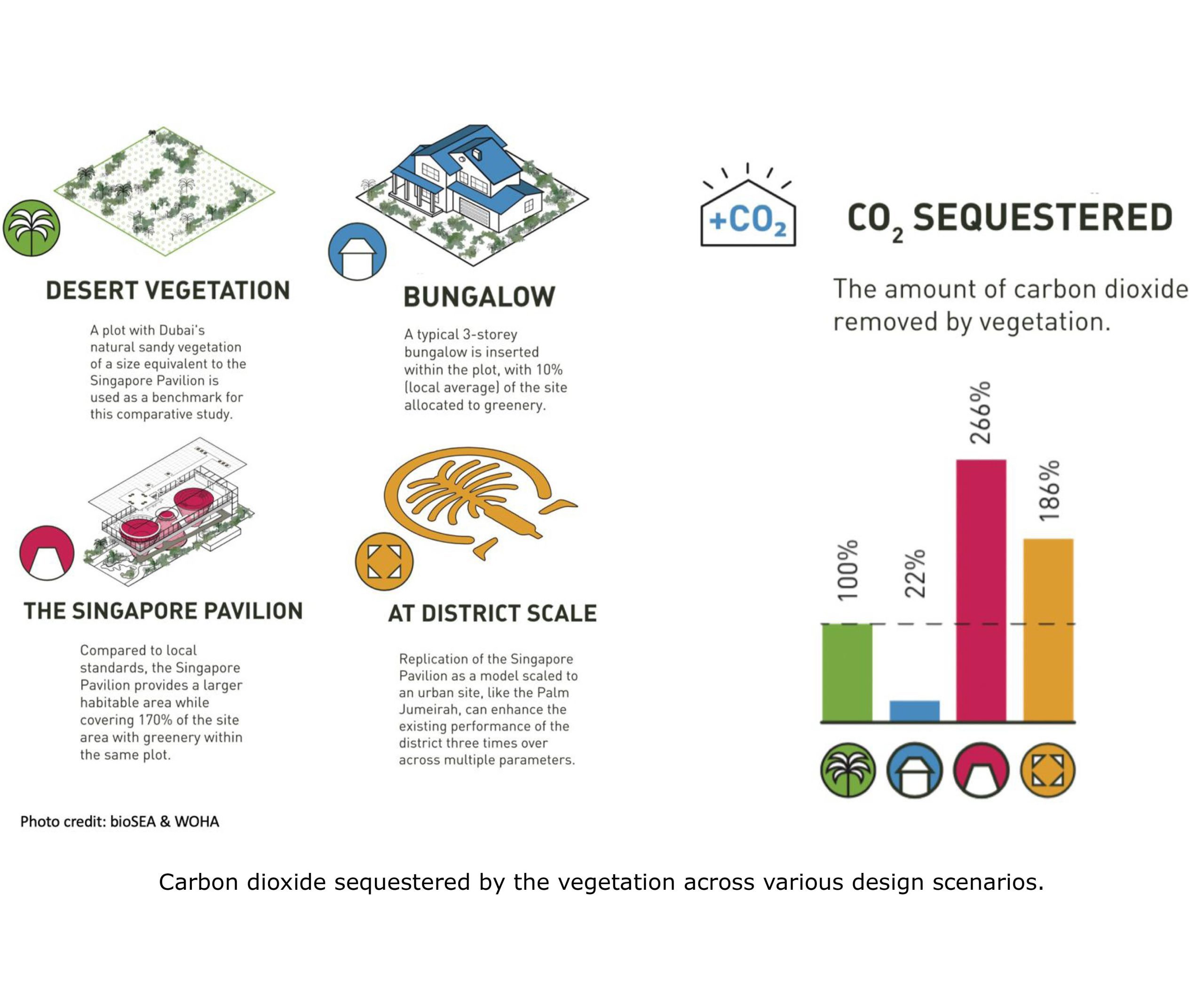-
Designer
WOHA Architects
-
Client
Urban Redevelopment Authority Singapore
-
Location
Dubai, United Arab Emirates
-
Scale
Building
-
Status
Built
-
Services
Ecosystem Service Assessment
-
Use
Exhibition Showcase
-
Year
2020-2021
Dubai EXPO SG Pavilion, UAE



Project Summary
The World Expo is a renowned international platform that showcases global innovations across various fields. Expo 2020 Dubai aimed to celebrate global developments and foster collaboration among participating countries. Singapore’s Urban Redevelopment Authority saw this as an opportunity to highlight Singapore’s journey towards growth, sustainability, and resilience. Themed ‘Nature. Nurture. Future’, the Singapore Pavilion, designed by WOHA Architects, showcased Singapore’s transformation into a livable and sustainable city despite its physical limitations.
To support the innovative design of the Singapore Pavilion, an ecosystem service performance review was conducted. bioSEA collaborated with WOHA to evaluate the ecosystem services provided by the pavilion’s design. The design was compared to a typical landscaped bungalow in Dubai to contextualise its performance in Dubai’s climate and landscape. The results showed that the pavilion’s design saved a significant amount of energy, equivalent to 115 air-conditioners, through passive cooling offered by the extensive greenery. This energy-saving was 82% higher than that of a typical bungalow’s landscaped greenery.
Additionally, the study explored the Singapore Pavilion scale up i.e. how Dubai’s Palm Jumeirah district would perform if the bungalows in that district were replaced with Singapore Pavilion’s design. The results indicated that the district would experience significant improvements in aspects such as solar heat reduction, carbon sequestration, and air pollutant removal, performing up to 4-8 times better.
Overall, the study provided scientific evidence supporting the beneficial impact of design strategies employed by the Singapore Pavilion on both humans and biodiversity. The findings suggested that these strategies could be expanded on a larger scale to optimise ecosystem service benefits.
